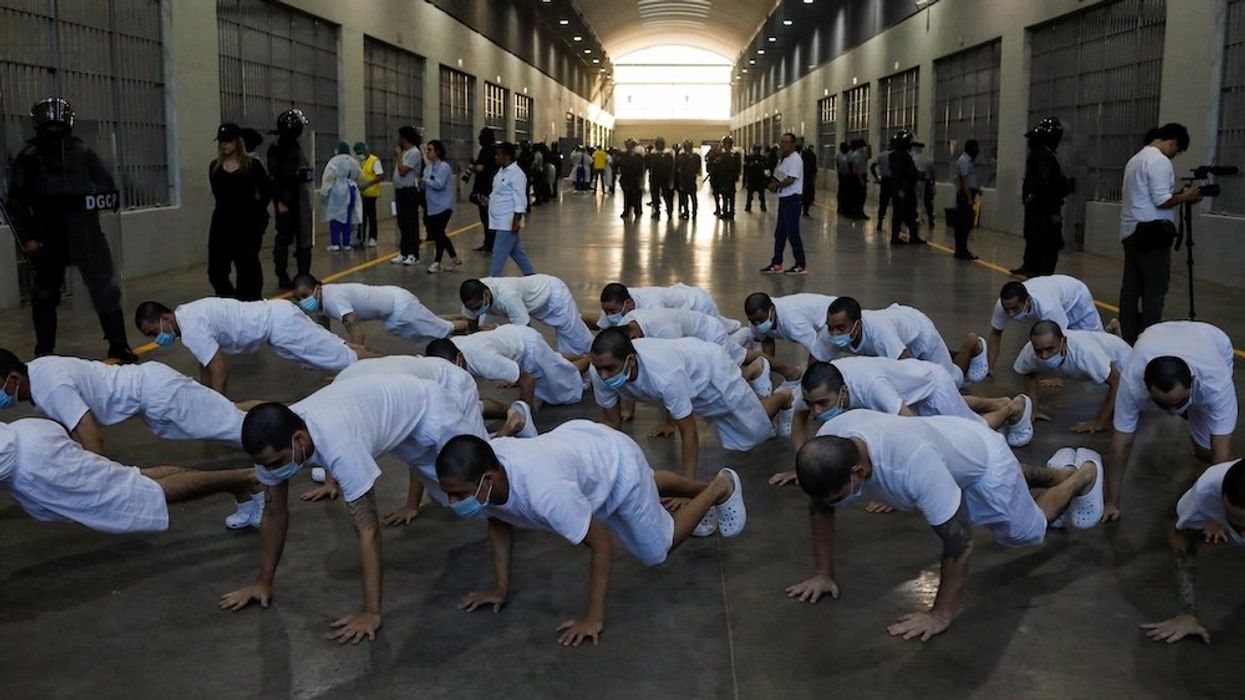Legal experts pounced President Donald Trump’s proposal of sending U.S. citizens convicted of crimes to international prisons.
The Washington Post reports Trump openly mulled the possibility of off-siting U.S. citizens to foreign prisons on Air Force One, saying “we have some horrible criminals, American grown, born.” He added that he’s “all for” sending them to prisons in El Salvador, where he has already detained some Venezuelan migrants to public outcry.
After protestors attacked Tesla dealerships, vehicles and charging stations over controversial figure and Trump adviser Elon Musk, Trump hoped protestors would “get 20 year jail sentences … in the prisons of El Salvador, which have become so recently famous for such lovely conditions!”
READ MORE: ‘Beyond parody’: Fox News, Trump Cabinet slammed for ‘Dear Leader’ praise as market dives
Trump conceded on Sunday that, “I don’t know what the law says on that.”
The law doesn’t smile on it, according to University of California Professor and immigration scholar Davis Gabriel J. Chin.
Such a proposal is “the equivalent of sending political opponents to the Gulag in the Soviet Union era,” Chin told Washington Post reporters in an email.
The paper reports that U.S. citizen cannot legally be deported or denied entry to the United States. The suggestion “does not seem very realistic,” said Jean Reisz, an associate professor of law who co-directs the University of Southern California Gould School of Law Immigration Clinic, said Trump’s suggestion “does not seem very realistic.”
READ MORE: 'Grinding to a halt': Stunning chart shows Trump's impact on Biden 'manufacturing boom'
Even U.S. citizens who have traveled overseas to fight with terrorist organizations against U.S. interests, such as the Islamic State must be allowed to return, said Reisz. The government can detain them and charge them with crimes and even incarcerate them upon conviction, but U.S. officials are not permitted to deny them reentry to the U.S.”
Read the full Washington Post article at this link (subscription required).


